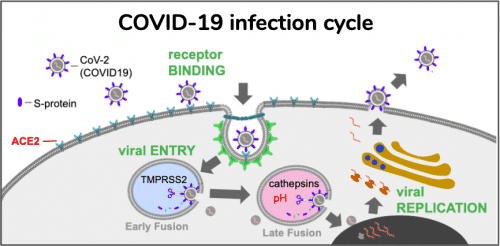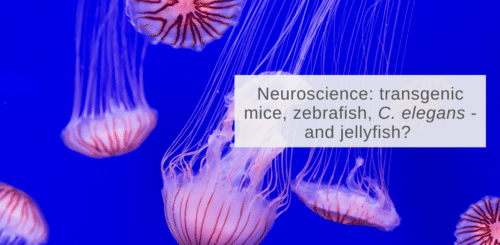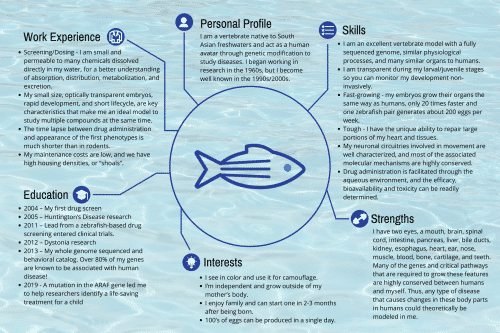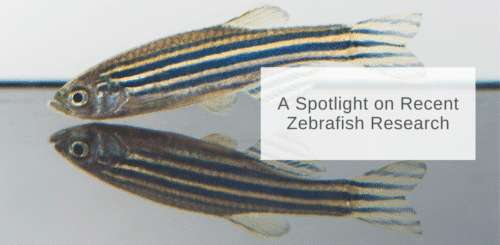Zebrafish For Disease Research
Home > Resources > Zebrafish Resource Center > Zebrafish for Disease Research
Zebrafish For Disease Research
With the impactful developments of CRISPR and next-generation sequencing technology, disease modeling in zebrafish is accelerating the understanding of the molecular mechanisms of human genetic diseases. In our capacity as a leading zebrafish CRO, we have compiled a collection of articles and reviews that focus on zebrafish disease models for biomedical research.

Review of Zebrafish Models to Boost Research in Rare Genetic Diseases
In this article we will discuss Crouzier et al.’s publication, and InVivo Biosystems’ ongoing work to help identify and study variants of interest.

One Fish in a Large Pond: History of the Zebrafish and Other Fish Models for Research Applications
In this article, we will review the history of the zebrafish, and discuss the scenarios when other fish species are advantageous.

Zebrafish Modeling of SARS-CoV-2 Susceptibility in Rare Diseases
Using zebrafish modeling in a rare human disease may be the perfect physiologic model to better understand the disease and generate more individualized therapeutic medical responses and positive outcomes for higher risk COVID-19 groups.

Zebrafish Acute Toxicity Study Demonstrates Concordance with Rat Fetal Toxicity
As the zebrafish is increasingly adopted to test drug toxicity, it is critical to systematically assess the parallels between zebrafish, humans and other model systems. In this article, we highlight a recent paper that compares toxicity results obtained in zebrafish and rats.

Models to Research the Microbiome
The human microbiome is a booming area of research thanks to evidence showing that it could have far-reaching effects on our health. But how is this research being conducted? In this article, we will discuss the commonly used model organisms for microbiome research, and what insights they can provide.

Neuroscience: Transgenic Mice, Zebrafish, C. elegans – and Jellyfish?
In this article we discuss Weissbourd’s recent publication as well as GCaMP more broadly, showing how advancing technology has enabled researchers to ask questions that span disciplines and model organism species.

From Unknown to Known: How the Zebrafish Model is Playing a Vital Role in the Undiagnosed Disease Network
The Undiagnosed Diseases Network brings together experts across the USA, combining clinical care and research to find diagnoses for undiagnosed patients. Zebrafish are extremely valuable disease models in this research, as they reduce the cost and speed up the process of identifying therapeutic targets.

Zebrafish CV
When you have to apply for a new job, you are asked to provide a resume, CV, and a cover letter. So why then aren’t you asking the same of the model organisms you are using? We put together a fun, yet very informative, Zebrafish CV for you to learn more about the small fish and why it makes an ideal model for studying human diseases.

Zebrafish Modeling for the Clinic: Rapid in vivo Functional Testing of Patient Variants for Clinical Applications
As a proof of concept study, we used precision gene editing and transient knockdown approaches targeting stxbp1a – the zebrafish ortholog of human gene syntaxin-binding protein 1 (STXBP1) – to model variant genetic contributions to pediatric epilepsy and encephalopathy.

Nutraceuticals & New Approaches to DMD Treatment
Inspired by results seen in real-world clinical practice, Licitra et al. (2021), used a zebrafish model organism to explore the ability for gingerol to mitigate dystrophic symptoms and improve DMD patients’ quality of life. This article will discuss their findings, and how studies like this present an exciting and promising future for currently incurable diseases.

Why Zebrafish are Particularly Well Suited for Anti-Seizure Research
In episode 64 of 17 Minutes of Science, we are talking with Dr. Deborah Kurrasch about her recent paper, Metabolism Based Drug Discovery in Zebrafish, An Emerging Strategy to Uncover New Anti-Seizure Therapies, and why zebrafish are particularly well suited for anti-seizure research.

A Spotlight on Recent Zebrafish Research
There are many reviews discussing the use of CRISPR-based approaches and the various technological developments in zebrafish. We have compiled a list of most influential and informative articles based on our learnings to share with the zebrafish research community.

A New School of Thought: Using Zebrafish to Understand Genetics of Group Behavior
As we all spend time isolating ourselves for social distancing purposes, group behavior is on the forefront of our minds in new and unforeseen ways. This article review explores how zebrafish may provide insights into the long-term effects of prolonged isolation.

Zebrafish and . elegans in ALS: Tightening the Bench-to-Clinic Gap
While advances in molecular imaging, high-throughput screening, genomics and techniques like CRISPR-Cas9 gene editing have dramatically enhanced our understanding of the human body and disease, the pace of advancing new treatments for those diseases has lagged behind significantly.

Developing Novels Assays in Zebrafish for Therapeutic Cancer Screening
For episode 37 of 17 Minutes of Science we are joined by Dr. Rita Fior, a developmental Biologist fascinated by how cells interact with each other, to deliver instructions, to collaborate, to compete or synchronize their actions. Tune in to learn more from Dr. Fior about the novel assays she has developed using zebrafish.
